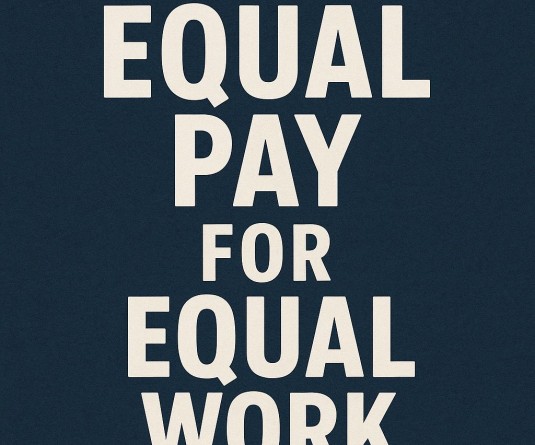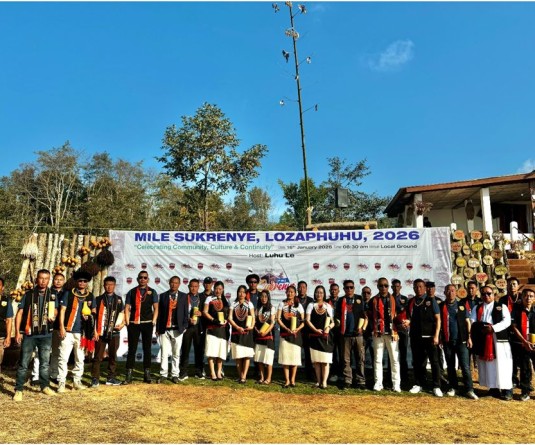
Menkato V Awomi
In a world where the Gospel is indeed advancing, there is also an undeniable rise in the force of darkness, a surge of sin, deception, and lawlessness. And while the light of Christ is being proclaimed, the shadows of evil continue to grip societies, institutions, and individuals alike.
Nagaland, our homeland known as a Christian State is not exempt from this reality. But today, I do not intend to address this issue from a political perspective, nor from a secular one. I write from the biblical point of view, observing the religious system within our land, particularly how we react to sin and corruption in leadership.
Keeping this in mind, prayer should never stop at the church gate, prayer centre, the pastor’s house, or the prayer warrior’s door. It can be lifted up anywhere, by anyone and God hears them all. When there is a genuine hunger for change, it does not have to begin with the leaders; it can also be birthed in the hearts of intercessors
A Culture Quick to Judge
There is a growing trend among religious circles and the general public as well that is quick to bring judgment over government authorities and those in political or administrative power. Especially in moments of exposed corruption or political scandal, the voices from churches and social platforms erupt in condemnation, shame, and mockery. Boldly proclaim curses upon such individuals, as though these public figures are beyond redemption, irredeemable and outside the reach of grace.
We must affirm the truth: corruption in any form is sin. Political manipulation, dishonest gain, exploitation of power, all these are grievous in the sight of God. They harm society, hinder justice, and misrepresent the purpose of leadership as ordained by God. However, a pressing question arises: Have our years of judgment, condemnation, and criticism changed anything? Has shouting from pulpits and gossiping in Christian circles about corrupt leaders led to any real transformation in our state?
Maybe there are small flickers of change, but have we seen the revival we desire? Have our loud condemnations produced fruit? If not, why?
Judging Without God’s Standard
We call ourselves a Christian people. Yet are we judging according to the Word of God, or according to human standards? The Church is not merely a religious institution; it is the Body of Christ, the hands and feet of Jesus on earth. It exists not only to call out sin but to intercede for sinners.
In 1 Timothy 2:1-4, the Apostle Paul clearly lays out what our posture should be toward those in authority:
“First of all, then, I urge that supplications, prayers, intercessions, and thanksgivings be made for all people, for kings and all who are in high positions, that we may lead a peaceful and quiet life, godly and dignified in every way. This is good, and it is pleasing in the sight of God our Savior, who desires all people to be saved and to come to the knowledge of the truth.”
This is God’s command: to pray, intercede, and give thanks for those in high positions not just complain about them or curse them. Why? Because only when they come to the knowledge of God will they begin to walk in righteousness. A transformed heart can only come from God. No amount of human shame or public condemnation can replace the power of true salvation.
So then we must ask ourselves: are we sincerely praying for our leaders? Or are we simply echoing the world’s voice of judgment, bitterness, and outrage?
Sin: Not Just What We Do, But Who We Are
To understand the issue of corruption properly, we must return to the root of the matter: sin. Sin is not just about actions, it is about identity. The Bible does not say we are sinners because we sin; rather, we sin because we are sinners.
In Romans 3:23, we read:
“For all have sinned and fall short of the glory of God.”
And again, in Romans 5:12:
“Therefore, just as sin came into the world through one man, and death through sin, and so death spread to all men because all sinned.”
The root of corruption is the fallen nature of man inherited from Adam. Every man and woman born into this world carries a corrupted seed. Unless one is born again, born of the imperishable seed of Christ they will continue to manifest this corrupted nature, whether in politics, the marketplace, or even within the religious system.
This is why Jesus came to destroy the corrupted seed and offer us a new life. He did not die so that we could become judges of others’ sins; He died so we could become witnesses of His grace. But this grace must be received. Transformation only begins when a person receives Christ. The Gospel is not about behavior modification—it is about heart transformation.
The Log in Our Own Eye
Far too many in Nagaland, even those in religious circles, are eager to point out the “plank” in the eyes of others while ignoring the “log” in their own. Jesus warned us about this in Matthew 7:3-5:
“Why do you see the speck that is in your brother’s eye, but do not notice the log that is in your own eye?”
Many who label others as corrupt may not even be truly saved themselves. Salvation is not inherited by tradition or culture. It’s not gained by being born in a Christian family or living in a Christian state. It comes through a personal relationship with Jesus Christ, marked by repentance, faith, and submission to God’s Word.
As Romans 2:17–24 warns, we are not to boast in the Law or in ourselves, for when we fail to live according to what we preach, the name of God is blasphemed among the nations because of us.
Intercession Is the Key
In Matthew 9:37, Jesus says:
“The harvest is plentiful, but the laborers are few.”
Jesus was not necessarily pointing to a faraway land. He was pointing to the people around us, even the very people we often criticize our leaders, our government workers, our politicians. He calls us not only to preach but also to intercede so that God may send laborers into the harvest.
We may never be able to speak to every leader in person. But we can speak to God on their behalf. We can cry out in intercession, asking God to bring them to salvation, to change their hearts, to raise up righteous voices among them. The power of the Gospel is not limited to pulpits. It can penetrate government offices, legislative chambers, and political discussions but only when we, the Church, take up our true calling.
The Gospel is the power of God for the salvation of all who believe (Romans 1:16). Let us not assume who will or won’t believe. That is not our place. Our duty is to intercede, proclaim, and trust God with the results.
Submission with Discernment
Romans 13:1 reminds us:
“Let every person be subject to the governing authorities. For there is no authority except from God, and those that exist have been instituted by God.”
Submission to authority does not mean blind obedience to corruption. It means respecting the laws and structure God has ordained while standing firm in righteousness. We submit to what is good and resist what is evil, but we do so in the Spirit of Christ, not in the spirit of rebellion, mockery, or bitterness.
Submission does not cancel out discernment; it completes it. We speak truth in love, but we also submit to lawful authority in areas where it aligns with God’s will for order, for peace, and for society’s benefit.
Conclusion: Pray, Intercede, and Obey God
In the end, the Bible has not commanded us to curse the authorities, write articles full of rage, or host gossip sessions in the name of righteousness. It has commanded us to pray and intercede.
Until we obey this command as a community, we will not see lasting change. Revival will not come by complaint, it will come by consecration.
Let’s return to God’s way. Let us humble ourselves, repent of our own sins, and begin to see with God’s eyes not just seeing sin, but seeing souls He desires to save. If we do this, a godly, peaceful, and dignified life in our land will no longer be a dream, it will be a testimony of God’s power through His Church.
Shalom





